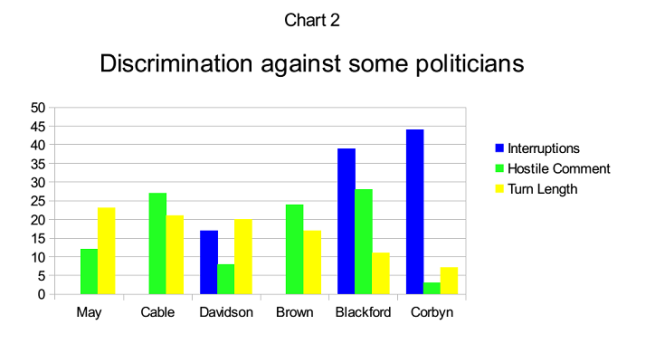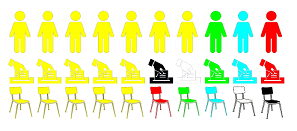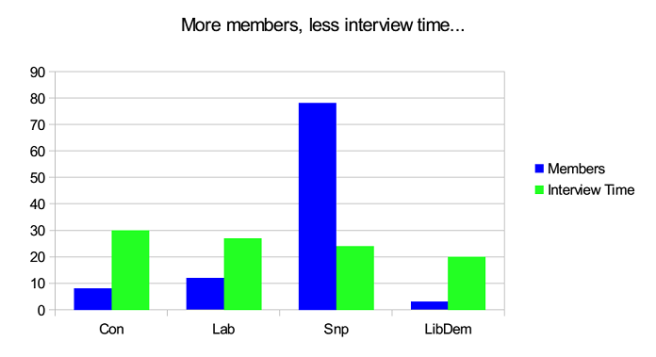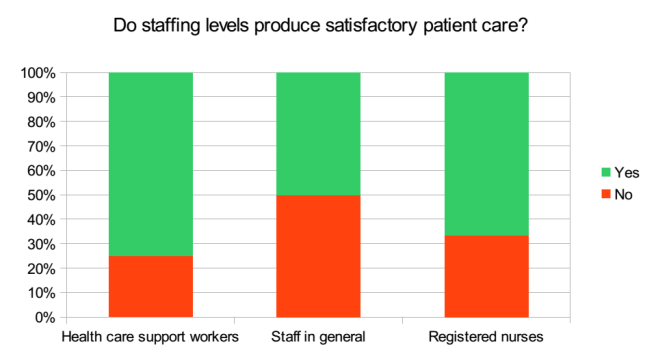Response from BBC Scotland: “We couldn’t be arsed. Now go away.”
And this from an outfit that is still recovering from the public relations disaster of messing with Wings Over Scotland’s YouTube channel!
Oh, well.
Mr Ian Small
Head of Public Policy
BBC Scotland
40 Pacific Quay
GLASGOW G51 1ADDear Mr Small,
I’m offended by the enclosed response that I’ve received from the Editor of “Reporting Scotland”, and I think you should be concerned about it too. It’s a public relations disaster: she hasn’t been sent half the information (two charts), she refuses to read the other half (online supporting data), she makes a cheap jibe at my using the wrong name for the UK-wide broadcaster, and she ignores the main question (which was “Please explain your policy”).
In an article in The Scotsman on 20th August, you wrote, “We want to engage, constructively, in dialogue with those who question our journalism or are suspicious of our decision-making.” In this instance, you failed spectacularly to do that.
When Scotland becomes independent, this way of treating your customers will not look good. I would welcome it if BBC Scotland could engage with the issues I raised.
Yours faithfully,
Derek Rogers
Editor, “Reporting Scotland”
BBC Scotland
40 Pacific Quay
GLASGOW G51 1AD
Dear Editor,I thank you for your reply to my letter to BBC Audience Services asking why you discriminated against some political parties. While I welcome your personal engagement with this topic, I don’t think your response will do, for reasons which I give interleaved below.
Best regards,
Derek Rogers
Their response in detail:
Dear Derek
Reference CAS-5126206-61V30W
Thank you for your correspondence. Your comments were passed to the Editor of Reporting Scotland. who has asked that I forward her response as follows:
“Thank you for writing to BBC Audience Services about various ‘leaders’ interviews in September and October when party conferences were being held.
In these interviews, you say “you did not reflect the respective strengths of political parties in Scotland, and you discriminated against some politicians.”
— I did say that, and I note that you don’t challenge it. Does that mean that you concede this point?You further say “your interview times were roughly similar for all four parties”. That is as it should be – at the time of a party’s annual conference we endeavour to provide for all main parties parity of coverage of the conference as a whole and of any leader interviews we may do within or around that coverage.
— It is not as it should be. Coverage should reflect the relative strengths of the parties.— The interviews were not “at other times”, so the paragraph which follows is irrelevant.
At other times, news judgements are more likely to drive editorial decisions – so that if a party is in government it is more likely to find itself being questioned than other parties because it is initiating policy for the respective legislature to pass into law. This is the case for the SNP in government in Scotland, as it was for Labour and the Liberal Democrats in previous administrations in Scotland; and it is also the case for Labour, the Conservatives and the Liberal Democrats when they are or have been in power in the UK. The views of other parties are, of course, also sought and reported.You suggest that for big stories from across the country, licence fee payers “will look not to yourselves but to BBC London”. I somehow doubt that, as BBC London serves London and some surrounding areas as a vibrant local station.
— I clearly meant the UK-wide broadcaster, in contrast to the Scottish broadcaster. Your response is a cheap jibe that demeans you.I am afraid I do not understand your reference to “turn-lengths”, as in “the reduced turn-lengths for Blackford and Corbyn, at 11 percent and 7 percent respectively of the total relative turn-lengths for all speakers”.
— In all conversations, speakers take turns: one speaks and stops, and then another speaks. The length of a “turn” can be measured (usually in seconds). If six speakers are treated equally, they will each get one-sixth (17 percent) of the total turn-lengths. Blackford and Corbyn did not.You also refer in your bar chart 2 to “interruptions” and “hostile comment” which are subjective labels with no measurable standards – an “interruption” can be by an interviewer attempting to get the interviewee to answer a question, a “hostile comment” might be a challenge to justify a statement.
— These are not subjective labels: I laid down objective criteria for them, which I described under “Methodology” in the supporting data. I enclose a copy.The bar charts which I have received are in monochrome with no legends and therefore tell me nothing – so unfortunately I cannot comment on them. You have supplied a link to an unverified external source: we do not open such sources.
— The paper copies of the bar-charts that I sent to Darlington were in colour and had legends; if they didn’t reach you, you should complain to them. The charts are publicly available at:
— indyref2.scot (blog-post of October 12th)
— scotlandisdifferent.wordpress.com (blog-post of October 12th)
— http://www.derek.scot
— http://www.derek.uk (click ‘BBC’ at foot of front page – the directory is no longer hidden)
— http://www.derek.co.uk (as above)
If your policies do not allow you to access any of these sites, I will send you paper copies.
You say in your concluding paragraph “Your disfavouring of the SNP leaves me, rightly or wrongly, with the feeling that I have a grievance”. The SNP is not being “disfavoured” and therefore I believe you “wrongly” have the feeling that you have a grievance.
— I still have the feeling that I have a grievance.— My closing question, which was signalled at the beginning of my letter, was, “Can you tell me what policy decision has led you not to reflect the strength of party support, and to discriminate against some parties?” You do not address this question.
Thank you again for being in touch.”
Kind regards
Andrew McCormick
BBC Complaints Team
http://www.bbc.co.uk/complaints
NB This is sent from an outgoing account only which is not monitored. You cannot reply to this email address but if necessary please contact us via our webform quoting any case number we provided.





